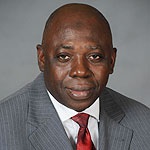A five-member delegation will represent Ghana at the United Nations Arms Trade Treaty (ATT) negotiation conference in New York from July 2 - July 27.
They are Alhaji Muhammed Mumuni, Minister of Foreign Affairs and Regional Integration, Mr. Baffour D. Amoa, President of West African Network on Small Arms, Colonel Ed Fiawoo, Director, Legal Services, Ghana Armed Forces, Dr. Kodzo Alabo, Director of Africa and Regional Integration Bureau, Ministry of Foreign Affairs and Regional Integration, and Mr. Jones Applerh, Executive Secretary of Ghana National Commission on Small Arms and Light Weapons (GNACSA).
The conference would promote transparency and accountability in import, export and transfer of conventional arms, prevent, combat and eliminate the illicit transfer, production, brokering of conventional arms and their diversion into the illicit market including use in trans-national organised crime and terrorism.
It would also establish the highest possible common international standards for the import, export and transfer of conventional arms, contribute to international and regional peace, security and stability by preventing transfer of arms that contribute to facilitate human suffering, serious violations of international human rights law.
This was announced by Mr. Jones Applerh, Executive Secretary of Ghana National Commission on Small Arms and Light Weapons (GNACSA) at a press conference in Accra on Tuesday.
It was organized by the Commission to brief newsmen about Ghana’s position on the arms situation and that of the sub region ahead of the conference.
He said the result of the unregulated trade might account for the diversion of arms into illegal markets where they ended up in the hands of criminals, gangsters, drug barons, war lords and terrorists.
Mr. Applerh said Ghana might bow out from negotiations if the issue on small arms and light weapons now the biggest challenge for the continent, was not critically documented at the conference.
He said there were three significant key issues for Ghana as far as the sub region was concerned and these included; small arms and victims support assistance, arms regulation, as well as the issue of small arms and light weapons transfer which was a major challenge being faced by the sub region.
Mr. Applerh said, for the Treaty to be workable and enforceable, it must provide guidelines for its clear implementation; ensure transparency which would include full annual reports of national arms transfers and an effective mechanism to monitor compliance.
It must ensure accountability with provisions for adjudication, dispute settlement and sanctions as well as comprehensive framework for international cooperation and assistance.
Mr. Applerh noted that currently, there was no comprehensive internationally binding instrument available to provide an agreed regulator framework for this activity, and it was a welcoming news that the EU had shown a growing support in all parts of the world for an ATT.
Mr. Amoa, indicated that if loopholes in the treaty were to be minimised, the treaty must include all weapons from military, security and police arms, related equipment and ammunition, components, expertise and production equipment.
He mentioned transfers including import, export, trans-shipment in the State sanctioned and commercial trade plus transfers of technology, loans, gifts and aid in addition to transactions by dealers and brokers as well as those providing technical assistance, training, transport, storage, finance and security.
Mr. Amoa, said the treaty was important because it would seek to lay sanctions and arms embargo and other international obligations in preventing armed conflict, displacement of people, transnational organised crime.
Dr. Alabo noted that Ghana’s position was not different from that of ECOWAS on the illicit transfer of arms.
He said there had been many victims of arms transfer due to free access to arms hence the frequent use of arms in conflict prone areas.
Col. Fiawoo said the main focus of the ATT was to prevent and combat illicit weapons to the illicit markets whilst victims’ assistance was significant for discussion.**
Politics of Wednesday, 20 June 2012
Source: GNA
Ghana to attend UN Arms Trade Treaty summitGhana to attend UN Arms Trade Treaty summit

Entertainment















